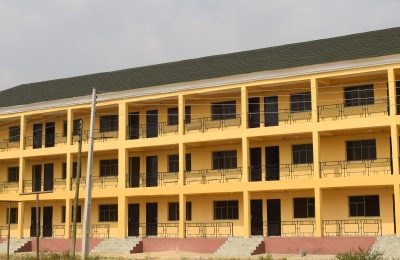

“Nigeria, a nation with a population of approximately 250 million, has over 30 airports. Yet, only three of these airports are financially viable.
“This stark reality underscores a severe underutilisation of our aviation infrastructure and highlights the need for a strategic shift in how we approach aviation sustainability.”

This was the position of the Chief Executive Officer of CITA Group, Dr Thomas Ogungbangbe, at the annual conference organised by the League of Airports and Aviation Correspondents (LAAC) with the theme, ‘Aviation Survivability Amidst a Challenging Macro-Economic Environment,’ held in Lagos.
While acknowledging the fact that passenger traffic in the sector is closely tied to economic activities with a robust economy generating increased business and leisure travel, which leads to higher passenger volumes, Ogungbangbe noted that the focus of all key players must be on stimulating economic growth and activities that will, in turn, boost demand for air travel.
According to the CITA boss, since a robust economy in the sector requires a concerted effort from all stakeholders, including the government, private sector and international partners, “Investing in new airport projects while neglecting essential infrastructure like roads is counterproductive.
“Improved road networks facilitate easier access to airports, making air travel a more attractive option for our populace. We must prioritise the maintenance and improvement of existing airports and essential infrastructure rather than embarking on new airport projects that may not yield immediate returns.”
He cited insights from other regions, such as Singapore and Hong Kong as countries that have demonstrated the benefits of focusing on economic activities and strategic investments.
Singapore, in his analysis, with a population of 6.03 million, registered 16.5 million passenger movements through Changi Airport in just the first three months of 2024 while Hong Kong, with a population of 7.5 million, recorded a 12-month rolling passenger volume of 44 million.
These figures, Ogungbangbe said, highlighted the potential for passenger traffic when economic conditions are favourable and strategic investments are made.
To improve aviation survivability in Nigeria, the CITA CEO emphasised, among others, the importance of stimulating economic growth, which requires the focus on policies and investments that stimulate economic growth, including improving road infrastructure, supporting small and medium-sized enterprises (SMEs) and enhancing sectors like tourism and trade that drive air travel demand.
He stressed the need to allocate resources efficiently as one of the ways to improve aviation survivability in the country through prioritising the maintenance and improvement of existing airports and essential infrastructure and in ensuring that funds are allocated efficiently to enhance the overall travel ecosystem
Ogungbangbe listed the encouragement of public-private partnerships as a major step towards facilitating an improved aviation survivability by attracting public-private partnerships to invest in and manage airport infrastructure, which he said can bring in expertise, efficiency and additional funding to improve airport operations and passenger experience.
Other factors that can help improve aviation survivability include a developed integrated transportation plans and the need to market and promote Nigeria as a travel destination.
Ogungbangbe, who attributed the high cost of aviation fuel as one of the critical challenges in the sector leading expensive ticket prices, operational costs and passenger traffic, said the volatility in fuel prices, coupled with poor access to foreign exchange and a weakening currency, exacerbates the financial strain on airlines.
He said: “Maintenance costs and the need for technological upgrades further add to the burden, making it difficult for airlines to operate profitably. Without LAAC’s dynamism and excellence, it would be difficult to gauge the state of our aviation sector accurately.”
Read Also: Tinubu’s wife begs Nigerians to shelve planned protests








